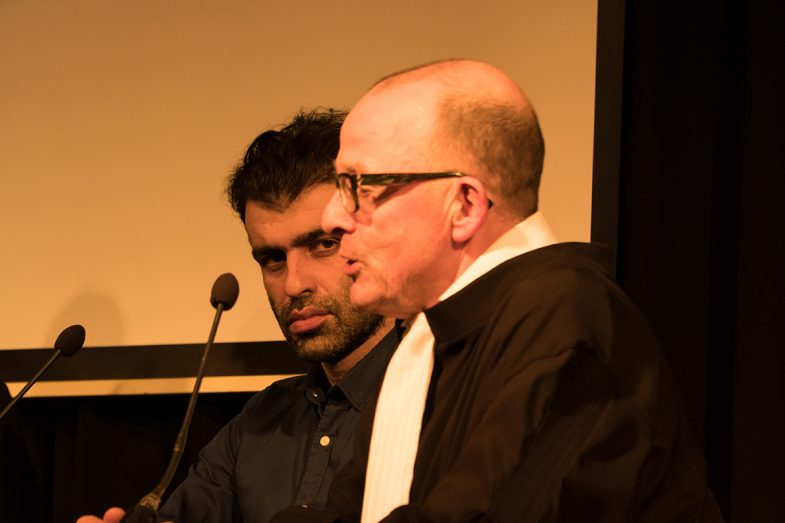In my over 10 years of experience as a full time visual and performance artist, I have developed a method of emancipatory art. In this method socio-political relations are treated as performative practices to impact larger public opinions and political issues. Departing from Situationist art practices where interventions are temporary and from the outside, in my method I make interventions from within where my body is situated with the focus towards the emancipation of myself and others in my situation. Art and activism merge in my work as a reflection of the politicisation of my body as a person of color and a political exile. Because of my personal experience as a refugee, struggling with institutional racism, precarious stories about migration go through my body, making it an archive of stories that howls throughout my art.

A few years ago, the effect of racism in the Netherlands became extremely visible and hence unbearable to me. The most revealing moment was when I was watching a conversation I filmed, in collaboration with the ‘Keti Koti (breaking the chain) dialogue table’ between two people on the topic of racism and its relation to colonial past in the Netherlands. They sat around a table in front of each other on the base of abolition of slavery monument in Oosterpark in Amsterdam. While I was listening and watching the footage from a few years ago, I saw a ‘Turkish looking guy’ appear a few meters behind the conversation table and took the teapot that was accidentally left there by producers, poured it on a cop and drank it. I got annoyed by him and thought why would ‘they’ always go for free stuff instead of following the event and the conversation. Then I zoomed in and saw that ‘they’ were me. I couldn’t recognize myself immediately because I shaved my head in that summer. I was shocked and could not believe that I became racist towards myself. From that moment I realized how deep racism has become implemented in my unconscious mind. The unconscious self racism. I had to change something. I decided to start a process of self-decolonization by returning as close as possible to my roots. I needed to reconnect to my people, who also like me, are seen as ‘they’, aliens and strangers. I needed to speak in my mother tongue again to remember who I’m and learn appreciation of who ‘I’ and ‘we’ are in a reciprocal relationship.
My name is Ehsan Fardjadniya. I am a visual and performance artist. In 2000, due to my political cartoons, I was exiled from Iran and consequently applied for refugee status in the Netherlands. I graduated from the Royal Academy of Fine Art in The Hague in 2006, followed by a two-year Master degree on art as politics at Goldsmiths University of London. I have since been working full-time as an independent artist, on various collaborative and solo projects.